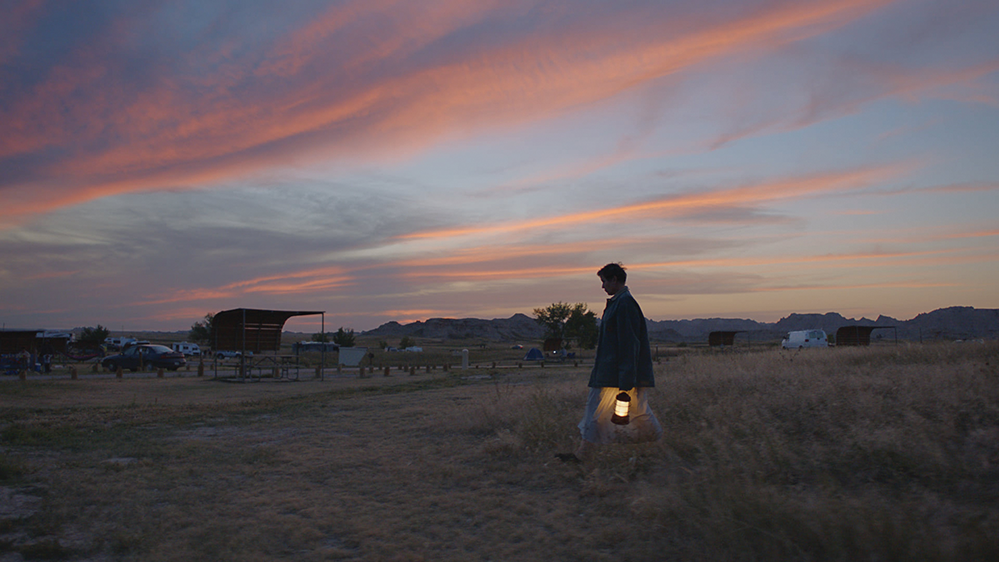★★★★☆
Evocative of recent masterpieces “Moonlight” and “Roma,” “This is Not Berlin” presents a brilliant coming-of-age story in Mexico City during the 1980s. Anchored by stunning performances and mesmerizing cinematography, the film amazes with a gorgeous narrative of exploring sexual identity and finding social acceptance in the margins of society.
In this semi-autobiographical tale by Hari Sama, we are introduced to the main character Carlos (Xabiani Ponce de Leon) as he struggles to come to terms with his disillusionment with the fiercely heterosexual, masculine mainstream culture that he finds himself living in.
However, Carlos discovers a different world when he is brought to the underground nightclub Azteca. Here, there is a thriving avant garde art collective and punk concert venue in which Carlos finds kinship and a sense of belonging. As Carlos and his best friend come to terms with their sexual identities, conflict arises between the two when their self-expression takes them in different directions.
“This is Not Berlin” shares cinematic DNA with recent Oscar hopeful “Roma,” and not simply due to the fact that both take place in Mexico City. Both films ground a touching semi-autobiographical tale of personal development in a backdrop of lower middle class Mexican society. Sama keeps his criticism of Mexican society subtle, which allows a beautiful story of personal growth and discovery to blossom and shine.
The supporting acting performances are uniformly terrific, from the eccentric Nico (Mauro Sanchez Navarro) to Carlos’ best friend Gera (Jose Antonio Toledano). The cast brings each character to life and creates a believable portrayal of Carlos’ gradual exploration of the Mexico City underground. The entire setting and culture feels completely natural and reflects Sama’s draw upon his own life as the inspiration for the film.
The supporting cast performs so well that they relegate Oscar nominee Marina de Tavira of “Roma” fame to a small and underutilized role as Carlos’ depressed mother. Instead of presenting an honest look at the complexities of managing depression while parenting, her mental status merely creates an opportunity for Carlos to experiment with prescription pills. Although promotional materials heavily feature her presence in the film, Tavira is not given enough material to shine as she did in Alfonso Cuaron’s masterpiece.

Cinematographer Alfredo Altamirano shakily lingers on his subject, a cinematographic move that harkens back to “Moonlight,” directed by Barry Jenkins. The camera lurches throughout the busy nightclub, sparking Carlos’ transformation in a manner that causes the viewer to feel intimately aware of their surroundings.
The comparison to “Moonlight” does not stop at the gorgeous cinematography. Both films eschew the typical plot-heavy nature of coming-of-age stories and instead concentrate on the personal development that each protagonist endures as they grow and learn more about the world.
Themes of sexual identity and social isolation reverberate throughout the two movies and perfectly encapsulate the casual, subtle homophobia that queer people face on a daily basis. In “This is Not Berlin,” Carlos experiences social exclusion due to small expressions of his sexual identity, which the film is careful to not exaggerate. Even the slightest declaration of a queer identity can result in complete segregation from straight peers.
However, Sama avoids obsessing over the trauma queer people face. He allows them to experience pure joy and success, mostly within the safe walls of the nightclub. This approach is unfortunately groundbreaking by Hollywood standards, where movies about marginalized groups often only get made when they heavily focus on misfortune and grief.
“This is Not Berlin” is not without its faults. Specifically, Sama falters in his lack of scrutiny of the underground scene that Carlos finds himself immersed in. Although the art scene he joins espouses progressive rhetoric, they appear to confuse grandiose statements and self-destructive behaviors for actual activism. It is unclear if the director intended the collective to function as a satire or if he genuinely supports their actions, which muddles the film’s clarity of theme.
Furthermore, there is little to no mention of the AIDS crisis, which almost destroyed the LGBTQ community in the 1980s. Instead, Sama opts to idealize this hazy utopia of the nightclub; the film depicts the rampant drug use and casual sex present in the underground culture as free of real-life consequences.
Despite the slight hiccups, “This is Not Berlin” offers an unflinching and personal depiction of one young, queer person’s journey of self-discovery. Sama welcomes the viewer into his own childhood and replicates his experiences of rebellion, sexual exploration and the euphoria of having a safe space to discover one’s true self.



















